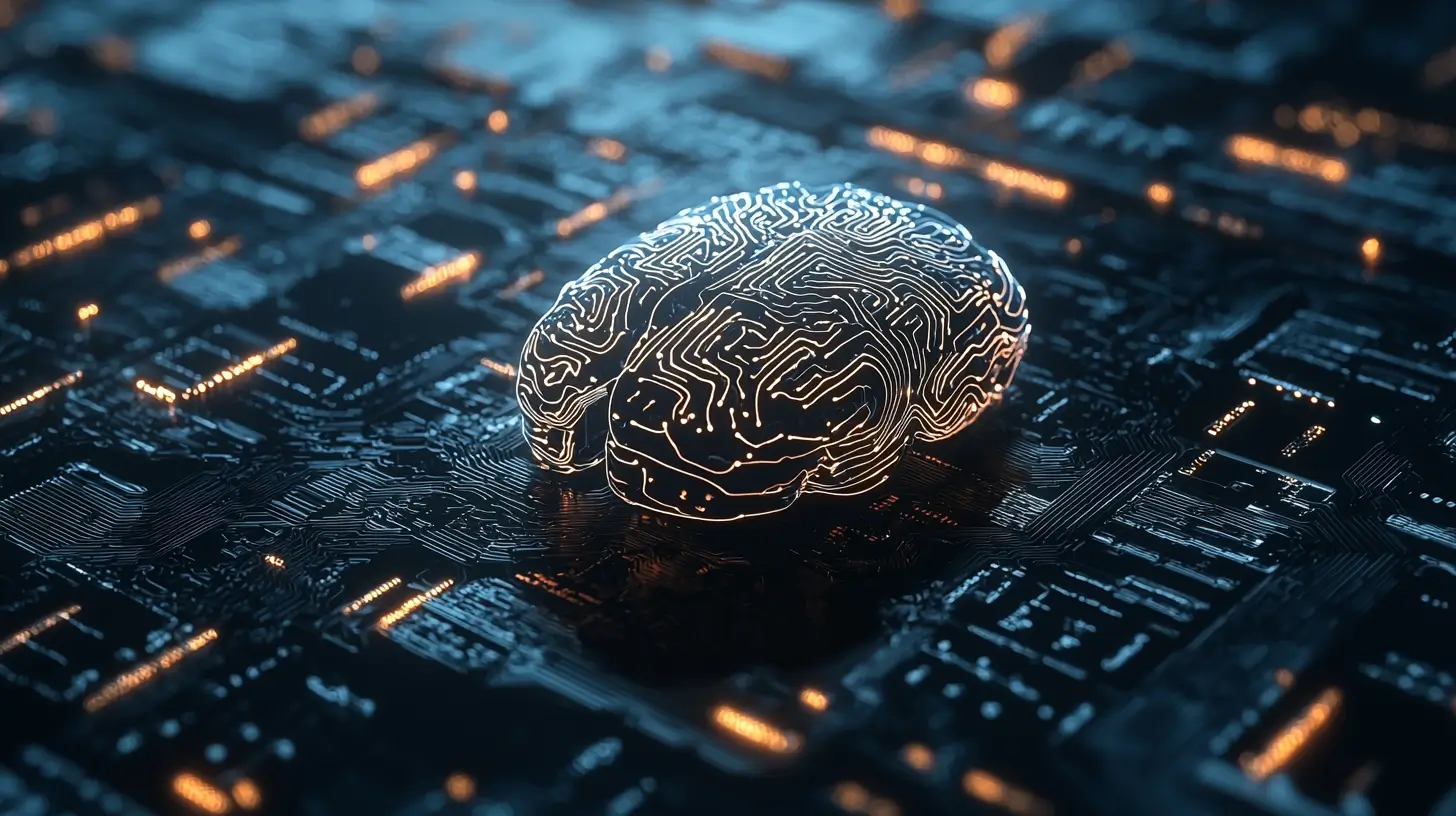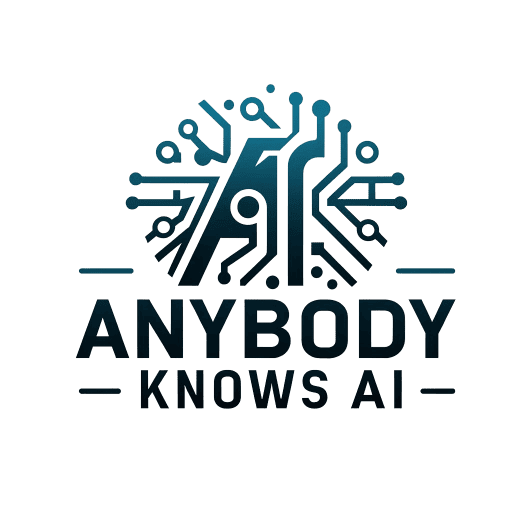Will AI replace data analysts? With AI advancing rapidly, it’s a common concern. The short answer: AI won’t replace data analysts entirely. Instead, AI will shift their roles towards more strategic, complex data and tasks previously only feasible for highly skilled data scientists.
Despite AI’s capabilities, the essential role of a human data analyst remains crucial for tasks requiring creativity, contextual understanding, and subjective judgment. This article explores how AI impacts daily workflows, its current limitations, and future trends. You’ll also find tips for staying relevant as a data analyst in an AI-driven landscape.
Key Takeaways
- Data analysts remain essential in modern organizations for interpreting data, deriving actionable insights, and driving strategic decision-making despite the rise of AI technologies. Tools powered by automated machine learning allow data analysts to achieve complex tasks that were previously only feasible for highly skilled data scientists, highlighting the evolving roles rather than a complete replacement.
- While AI automates many data analysis tasks and enhances efficiency, the role of a human data analyst is crucial for tasks that require creativity, contextual understanding, and subjective judgment, particularly in defining data structures and validating analytical methods.
- Future trends in AI-driven data analysis indicate a collaboration between AI tools and data analysts, where upskilling and adaptability will be crucial for professionals to thrive in the evolving landscape.
| Insight/Trend | Description | Impact on Data Analysts |
|---|---|---|
| Automation of Routine Tasks | AI is increasingly used to automate repetitive data cleaning and reporting tasks. | It frees up analysts to focus on more strategic analysis. |
| Advanced Analytics & AI Integration | AI can perform complex analytics (e.g., predictive modeling and anomaly detection) at scale. | Enhances analysts’ capabilities, making them more effective. |
| Demand for Hybrid Skills | There is a growing need for analysts with technical (coding, machine learning) and business acumen. | Upskilling is crucial to remain competitive. |
| Augmented Intelligence | AI tools are being used to augment rather than replace human decision-making. | Data analysts play a key role in interpreting AI outputs. |
| Job Evolution | The role of data analysts is evolving towards more strategic and decision-making roles. | New job roles such as “Data Translator” are emerging. |
| Increased Focus on Data Governance | As AI automates data tasks, ensuring data quality and compliance becomes more critical. | Analysts need to focus more on data governance and ethics. |
| Emergence of No-Code Tools | No-code AI tools allow non-technical users to perform complex data analysis. | Reduces dependency on traditional data analysts for basic tasks. |
| Ethical and Bias Challenges | AI models can introduce bias if not properly managed. | Analysts are needed to ensure ethical data use and model transparency. |
| Reskilling Opportunities | Companies are investing in reskilling programs for data analysts to learn AI and ML. | Creates opportunities for career advancement. |
| Long-Term Outlook | AI is unlikely to replace data analysts completely but will transform the nature of the job. | Analysts who adapt will find new opportunities in the evolving landscape. |
The Role of Data Analysts in Modern Organizations

Data analysts are indispensable in interpreting data to derive actionable insights, which can guide business growth and strategic decision-making. Their role varies across organizations but consistently focuses on establishing data-driven strategies that enhance operational efficiency and drive innovation.
A data analyst gathers the necessary information using various data collection tools to inform critical decisions in data science. With the advent of AI technologies, the evolving landscape of data science now allows data analysts to perform complex tasks that were once the domain of highly skilled data scientists, highlighting a shift in roles rather than a complete replacement.
Data analysts measure performance metrics in modern organizations to assess and improve processes. They also analyze data to help uncover trends and patterns that can influence future business strategies, ensuring that companies remain competitive and forward-thinking. The responsibilities of data analysts include collecting, processing, and interpreting data, which are essential for maintaining data quality and providing valuable insights.
Moreover, data analysts play a crucial role in various industries, from finance to healthcare, where accurate data interpretation can significantly impact outcomes. Data analysts identify fraudulent activities in the banking sector and optimize customer experiences through predictive analytics. Their expertise in data cleansing, transformations, and visualization ensures that organizations make informed, data-driven decisions.
AI’s Impact on Data Analysis Workflows

AI is revolutionizing data analysis workflows by automating many tasks traditionally handled by human data analysts working alone. For instance, AI tools can automate repetitive tasks such as data cleansing and preparation, enabling data analysts to focus on more critical aspects of their work.
This automation enhances efficiency and allows quicker and more effective decision-making as organizations increasingly shift toward AI-driven insights.
Integrating AI into data analysis workflows has democratized access to insights, making it possible for diverse stakeholders to benefit from data-driven decision-making. AI technologies, such as machine learning algorithms and generative AI tools, streamline data preprocessing and transformations, making complex data analysis more accessible to non-technical users.
Despite these advancements, human data analysts remain essential for interpreting AI-generated insights and ensuring the effective integration of AI tools. A human data analyst is crucial for tasks that require creativity, contextual understanding, strategic thinking, and subjective judgment, particularly in defining data structures, identifying patterns, and validating analytical methods.
As AI technology advances, data analysts must stay updated with the latest AI tools and techniques.
AI tools can enhance the analytics capabilities of data analysts, enabling them to provide more accurate and timely insights. However, the human touch is indispensable in contextualizing these insights and making nuanced decisions that align with business goals and objectives, especially as AI replaces data analysts in certain aspects of analytical processes.
Current Capabilities and Limitations of AI in Data Analysis
AI has made significant strides in data analysis, offering once unimaginable capabilities. AI can generate predictive models with high accuracy and reduce the time required for data preparation, making it a powerful tool for data analysts. Its ability to handle diverse datasets and easily perform complex transformations allows for more comprehensive data analysis.
AI algorithms excel at detecting patterns and correlations in large datasets that might be overlooked by human analysts, providing valuable insights that drive business decisions.
However, despite these capabilities, artificial intelligence has its limitations. One of the primary challenges of artificial intelligence is that AI lacks human judgment and critical thinking skills, making it difficult for AI systems to interpret data contextually and make nuanced decisions. AI cannot engage in creative thinking or produce genuinely original ideas, which limits its problem-solving capabilities in complex or ambiguous scenarios.
Additionally, the effectiveness of AI-driven analytics is highly dependent on the quality and representativeness of the training data, highlighting the importance of investing in data quality.
Furthermore, AI systems often require significant computational resources, making them less accessible to smaller organizations. Generative AI tools, while powerful, cannot synthesize visual, numerical, and tacit knowledge in a nuanced manner, limiting their usefulness in complex analysis.
Thus, human data analysts are essential for context, critical thinking, complex problem-solving, and creative problem-solving in data analysis workflows. The evolving landscape of data analysis, influenced by AI technologies, allows data analysts to achieve complex tasks that were previously only feasible for highly skilled data scientists, emphasizing the shift in roles rather than a complete replacement of data analysts by AI.
How AI Tools Enhance Data Analysts’ Roles

AI tools have transformed the roles of data analysts by enhancing data preparation and reducing errors. Automating tasks such as raw data, cleaning, transformation, integration, and enrichment allows data analysts to focus on more complex analytical problems and strategic decision-making. Automated curation helps teams save time and maintain consistency in data management, resulting in more accurate results.
AI-powered tools facilitate the creation of automated visualizations that can highlight patterns and anomalies in data, making it easier for data analysts to identify correlations and extract insights. These tools offer intuitive search capabilities, allowing more effective data discovery and interaction. Automating repetitive tasks will enable datenablesysts to focus more on critical thinking and problem-solving, enhancing overall productivity.
AI in exploratory data analysis has led to quicker identifying trends and patterns, allowing data analysts to generate insights more efficiently. Existing AI tools and machine learning algorithms have significantly improved the analytics capabilities of data analysts, allowing them to deliver more accurate and timely insights.
As a result, AI tools have not replaced data analysts but have instead augmented their roles, making them more valuable to organizations. Despite these advancements, the essential role of a human data analyst remains crucial for tasks requiring creativity, contextual understanding, and subjective judgment, particularly in defining data structures and validating analytical methods.
Human Judgment vs. AI: Why Both are Essential
While AI offers remarkable capabilities in data analysis, the essential role of a human data analyst remains indispensable. In complex or ambiguous scenarios requiringuman judgment, data analysts can leverage their diverse experiences and intuition to make informed decisions. Despite its ability to analyze data and detect patterns, AI struggles with context and nuanced decision-making in certain aspects, highlighting the importance of human oversight.
Human analysts play a crucial role in identifying biases in AI systems, ensuring ethical decision-making and fairness. This oversight is vital for maintaining the integrity of AI-driven analytics and preventing unintended consequences. Additionally, they require human judgment because human analysts can adapt and navigate uncertainty in unpredictable situations, whereas AI systems may falter.
The synergy between human intelligence and AI leads to improved decision-making. AI should complement human intelligence rather than replace it, fostering a collaborative approach combining both strengths. By integrating AI tools into their workflows, data analysts can enhance their capabilities while providing the critical thinking and contextual understanding that AI lacks.
Future Trends in AI-Driven Data Analysis

The future of AI-driven data analysis is promising, with emerging AI technologies expected to revolutionize automated data exploration. Advancements in machine learning algorithms and the integration of IoT data will enable more sophisticated and comprehensive data analysis.
Natural Language Processing (NLP) can help analysts extract insights effortlessly from unstructured textual data, while AI tools can enhance visualizations by recommending optimal charts and replacing data types.
Fostering a culture of innovation and incorporating diverse expertise will be vital for successful AI integration in data analytics as AI technology advances. Organizations embracing these trends will be better positioned to cultivate a data-driven environment and stay ahead of the competition.
AI-driven predictive analytics platforms and automated machine learning tools will continue to enhance the capabilities of data analysts, enabling them to provide more valuable insights and drive business growth.
Moreover, integrating AI in mobile banking applications and other industries will further expand the reach of data analytics. As AI tools become more accessible and user-friendly, data analysts must stay updated with the latest technologies and trends to remain relevant and competitive in the rapidly evolving field of data analysis.
These advancements will allow data analysts to perform complex tasks that were once the domain of highly skilled data scientists, highlighting the evolving roles of artificial intelligence AI rather than a complete replacement.
Tips for Data Analysts to Stay Relevant in an AI-Driven World
Human data analysts should focus on enhancing their skills and domain knowledge and leveraging AI tools to improve productivity and stay relevant in an AI-driven world. Staying updated with the latest AI and machine learning advancements will enable data analysts to adapt to new technologies and maintain their competitive edge. Being prepared and flexible is essential for thriving in the rapidly changing field of artificial intelligence (AI) and data analysis.
Promoting a culture of experimenting within teams can foster innovation and help data analysts replace data analysts to adapt to new technologies. Collaboration and knowledge sharing will help teams stay ahead of the curve and continuously improve their predictive analytics platform and capabilities.
Additionally, technological advancements can close some job roles but create new opportunities, highlighting the importance of staying proactive and adaptable.
Data analysts should also focus on developing their critical thinking, complex problem-solving skills, as AI cannot compete in these areas. Combining their expertise with AI tools allows data analysts to provide more valuable insights and drive business success using AI algorithms.
Embracing a growth mindset and continuous learning will ensure that data analysts remain relevant and indispensable in the AI-driven world.
Ethical Implications of AI in Data Analysis

The integration of AI in data analysis raises significant ethical considerations. Here are some key points to consider:
- AI systems can exacerbate existing biases in training data, leading to unfair outcomes and raising concerns about fairness.
- Organizations must prioritize data privacy and security, as AI often involves handling sensitive personal information.
- Ensuring data quality is crucial for maintaining the integrity of AI-driven analytics and preventing unintended consequences.
Transparency and accountability are essential for ethical AI decision-making. Many AI algorithms function as ‘black boxes,’ complicating efforts to understand their decision-making processes and achieve transparency.
Establishing accountability for AI systems when errors occur is crucial, as determining responsibility can be complex. By addressing these ethical considerations, organizations can ensure that their AI-driven analytics are fair, transparent, and responsible.
Moreover, data analysts play a vital role in ensuring ethical AI practices. Their critical thinking skills and domain knowledge enable them to identify biases and make informed decisions that align with ethical standards.
Prioritizing ethical considerations and promoting responsible AI usage helps organizations harness AI’s power while maintaining trust and integrity in data analysis workflows. A human data analyst is essential in AI-driven data analysis for tasks requiring creativity, contextual understanding, and subjective judgment, particularly in defining data structures and validating analytical methods.
Summary
In conclusion, while AI is transforming data analysis workflows, the evolving landscape influenced by AI technologies is shifting the roles of data scientists and analysts. AI tools enhance the capabilities of human data scientists or data analysts, allowing them to focus on more complex analytical problems and strategic decision-making.
However, human judgment and critical thinking are indispensable for contextualizing AI-generated insights and ensuring ethical decision-making.
Future trends in AI-driven data analysis promise exciting advancements, but data analysts must stay updated and adaptable to remain relevant. By embracing AI tools and fostering a culture of innovation, data analysts can continue to provide valuable insights and drive business success.
The ethical implications of AI in data analysis must also be addressed to ensure fairness, transparency, and accountability in AI-driven analytics.
Frequently Asked Questions
Will AI replace data analysts?
AI will not replace data analysts, as human judgment and critical thinking are crucial for interpreting AI-generated insights and making informed decisions. Instead, AI tools will enhance data analysts’ capabilities and human expertise.
How is AI transforming data analysis workflows?
AI is fundamentally transforming data analysis workflows by automating tasks like data cleansing and preparation, which enhances efficiency and allows human analysts to concentrate on more critical aspects of their work. Consequently, this leads to faster decision-making processes.
What are the limitations of AI in data analysis?
AI is limited in data analysis due to its lack of human judgment and critical thinking, which hampers contextual interpretation. Additionally, its performance relies heavily on the quality of training data and requires substantial computational resources.
How can data analysts stay relevant in an AI-driven world?
Data analysts must enhance their skills by leveraging AI tools and staying updated on recent AI and machine learning advancements to remain relevant in an AI-driven world. Emphasizing experimentation and collaboration will also foster adaptability to emerging technologies.
What are the ethical implications of AI in data analysis?
The ethical implications of AI in data analysis include the potential for exacerbating biases, raising privacy concerns, and complicating transparency efforts. It is essential to prioritize data quality, transparency, and accountability to ensure responsible AI usage.







